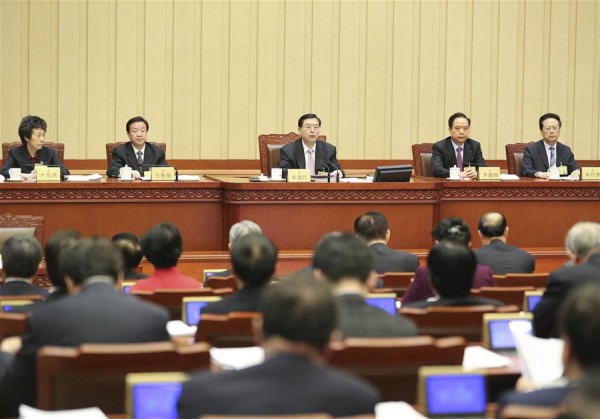-
Tips for becoming a good boxer - November 6, 2020
-
7 expert tips for making your hens night a memorable one - November 6, 2020
-
5 reasons to host your Christmas party on a cruise boat - November 6, 2020
-
What to do when you’re charged with a crime - November 6, 2020
-
Should you get one or multiple dogs? Here’s all you need to know - November 3, 2020
-
A Guide: How to Build Your Very Own Magic Mirror - February 14, 2019
-
Our Top Inspirational Baseball Stars - November 24, 2018
-
Five Tech Tools That Will Help You Turn Your Blog into a Business - November 24, 2018
-
How to Indulge on Vacation without Expanding Your Waist - November 9, 2018
-
5 Strategies for Businesses to Appeal to Today’s Increasingly Mobile-Crazed Customers - November 9, 2018
China passes controversial counter-terrorism law
Reports say that China is still pushing forward to pass the aforementioned law despite negative feedbacks from the U.S. government.
Advertisement
“While the Chinese authorities do have a legitimate duty in safeguarding their citizens from violent attacks, passing this law will have some negative repercussions for human rights”, William Nee, a researcher on China for Amnesty International who is based in Hong Kong, said in emailed comments.
The counterterrorism law is part of a series of new pieces of legislation that many experts say are created to tighten the Communist Party’s control over the economy and society, and promote a notion of rule of law that doesn’t undermine its monopoly on power.
On a related issue, Westerners residing in the Chinese capital received warnings of possible terrorist threats in shopping areas and night clubs during the Holiday period – US Official said in a report from Radio Free Asia.
A national intelligence center will also be established to coordinate inter-departmental and trans-regional efforts on counter-terrorism. The law broadly defines terrorism, grants the government more power to censor and authorizes governmental access to private business information.
Under the new bill, telecom operators and internet service providers in China are required to provide technical support and assistance, including decryption, to police and national security authorities to aid “in prevention and investigation of terrorist activities”.
China’s Foreign Ministry hit back, saying technology companies had nothing to fear and the USA had no right to intervene. Knife-wielding assailants killed 29 people at a train station in the southern city of Kunming in March a year ago.
U.S. President Barack Obama and the U.S. State Department objected publicly to the law’s requirement that overseas technology firms submit product encryption keys to the Chinese government as a condition for doing business in China. This latest move is one that will be view very suspiciously by foreign companies operating within China, or looking to do so. “Tech companies are not going to be willing to do that”.
The announcement on the terrorism law came a day after China said that it would not renew the press credentials of a French journalist who wrote an article about ethnic violence in the nations northwestern Xinjiang region. China already faces criticism from around the world not only for the infamous Great Firewall of China, but also the blatant online surveillance and censorship that takes place.
Advertisement
The U.S. has also said the new law could restrict freedom of expression and association.





























